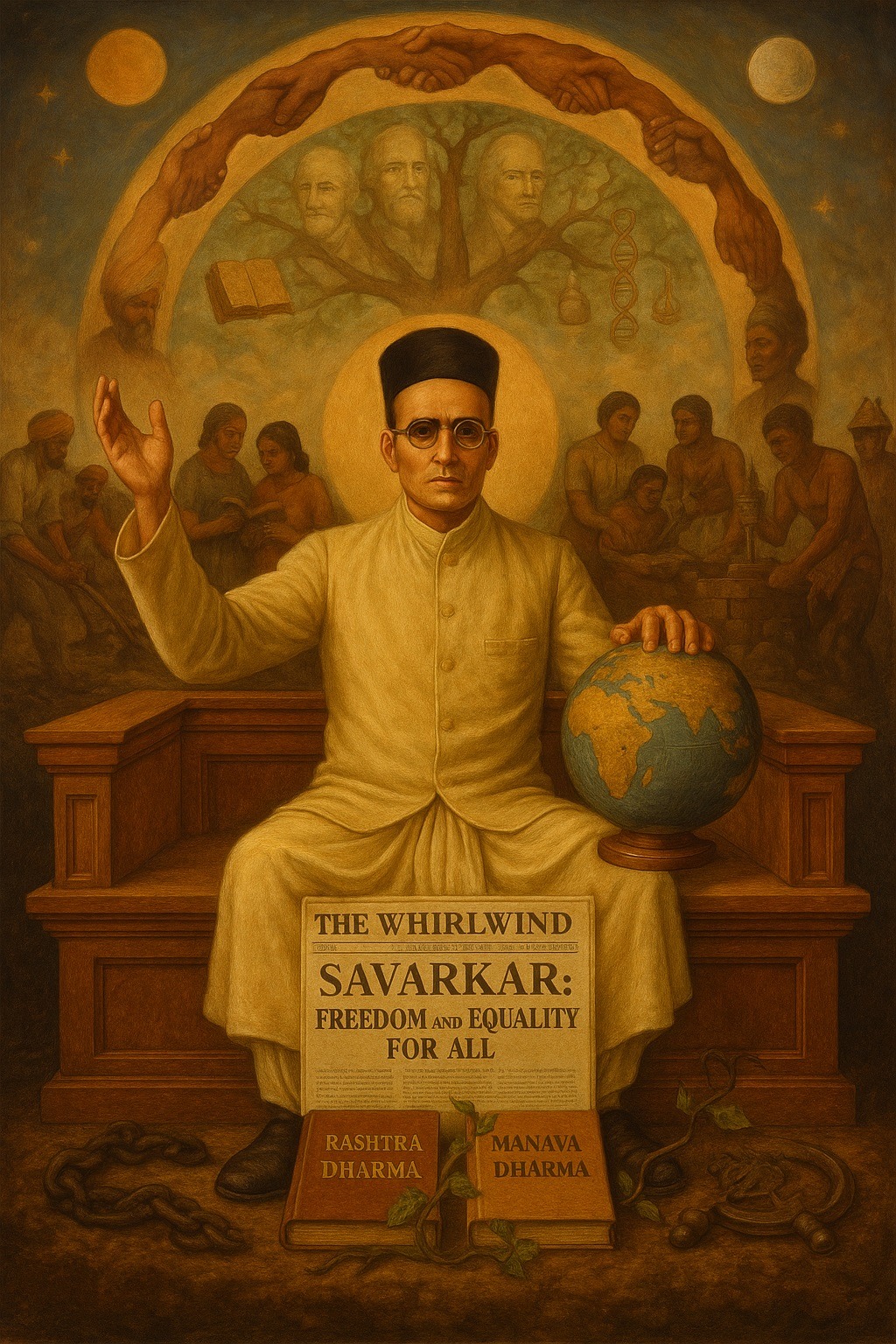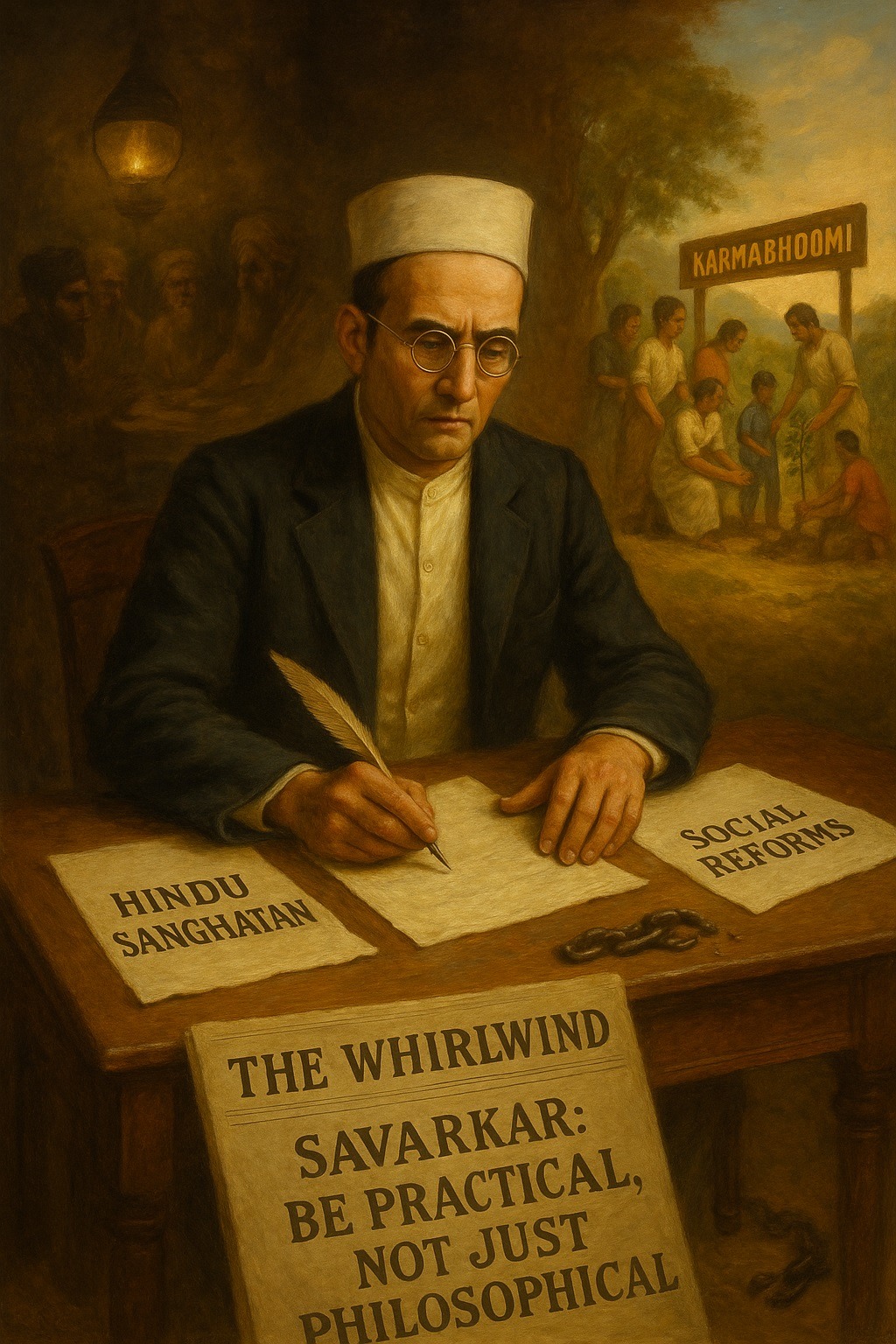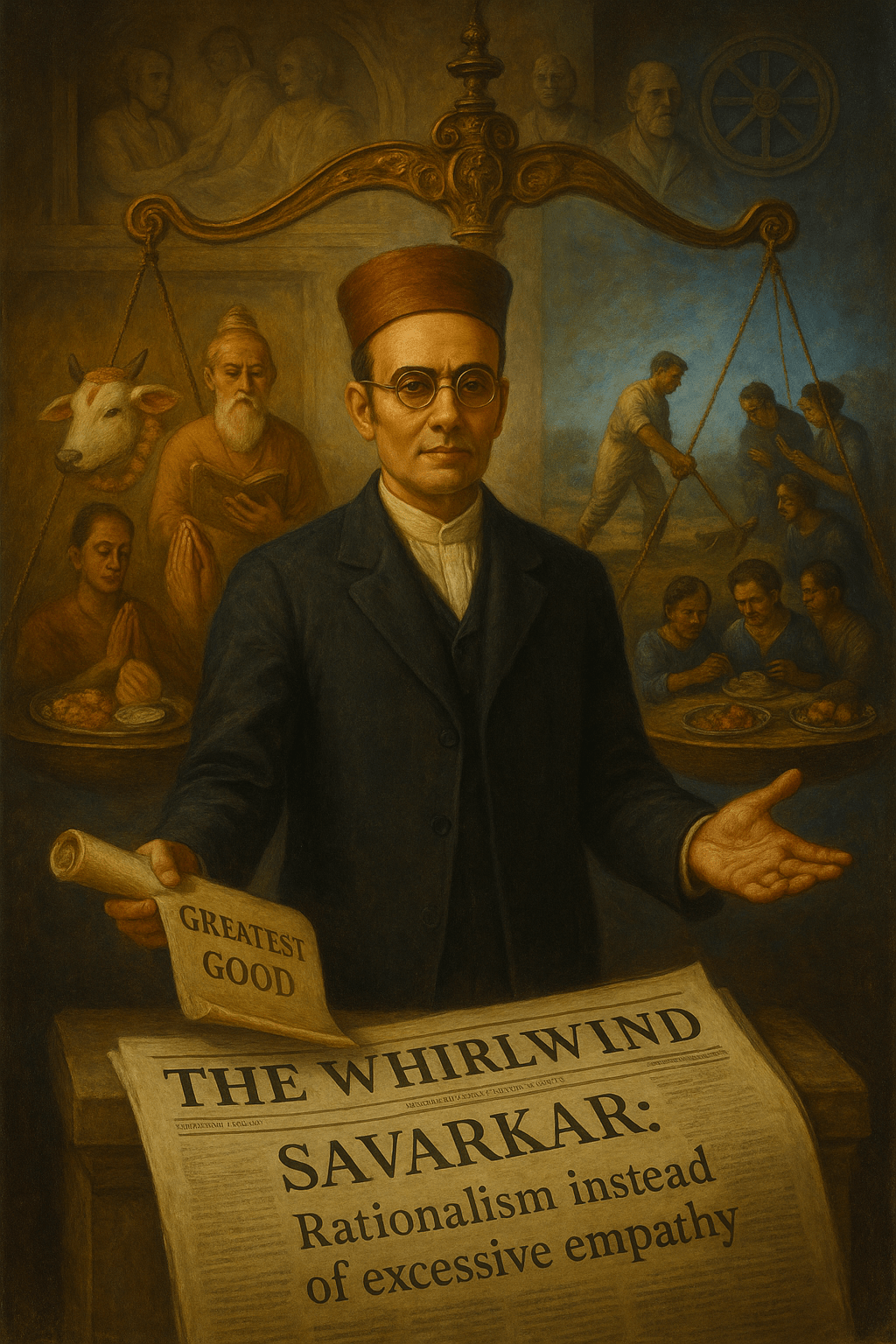Tag: Philosophy
-
Political Dimension of Hindutva, Part 12 Introduction – Savarkar’s Radical Philosophy of Resistance Few statements in modern Indian political thought are as provocative as Vinayak Damodar (Veer) Savarkar’s declaration that relative non-violence is a virtue, absolute non-violence a crime. This concise yet explosive maxim captures the essence of Savarkar’s departure from the dominant ‘Gandhian ethos’…
-
Savarkar’s Philosophy & Worldview, Part 12; Savarkar’s Five Philosophical Dimensions (5/6) Vinayak Damodar (Veer) Savarkar embedded a profound sense of realism in his philosophy. Beyond mere pragmatism, his worldview was rooted in adaptability, acknowledging that no ideology, institution, or tradition is universally applicable across all times and circumstances. His understanding of human behavior was dynamic—what…
-
Savarkar’s Philosophy & Worldview, Part 11; Savarkar’s Five Philosophical Dimensions (4/6) Vinayak Damodar (Veer) Savarkar is often remembered for his contributions to India’s independence movement, for his activism, historical writings, and bold ideas. Among his many dimensions, his pragmatism stands out as a defining feature of his approach to social, political, and cultural challenges. Savarkar’s…
-
Savarkar’s Philosophy & Worldview, Part 10, Savarkar’s Five Philosophical Dimensions (3/6) Vinayak Damodar (Veer) Savarkar is often remembered for his unflinching advocacy of nationalism, but was also a man of profound philosophical depth and his philosophy encompassed much more than a call for political independence. In this third installment of our exploration of Savarkar’s five…
-
Savarkar’s Philosophy & Worldview, Part 8, Savarkar’s Five Philosophical Dimensions (1/6) Vinayak Damodar (Veer) Savarkar, a prominent Indian nationalist, philosopher, and social reformer, was known for his unique approach to philosophy, which blended Western ideas with the Indian context. Savarkar’s intellectual framework drew from various philosophical traditions, and one of the most prominent among them…






